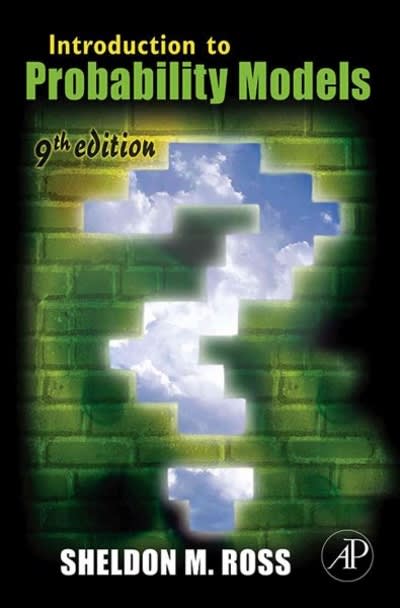69. For Example 5.21, let M(t) = E[D(t)] (a) Argue that M(t + h) = M(t) +...
Question:
69. For Example 5.21, let M(t) = E[D(t)]
(a) Argue that M(t + h) = M(t) + e−αtM(h)
(b) Argue that M(t + h) = M(h) + e−αhM(t)
(c) Argue that M(h) = λhμ + o(h)
(d) Use parts
(a) and
(c) to derive and then solve a differential equation for M(t).
(e) Use parts
(b) and
(c) to derive and then solve a differential equation for M(t).
Fantastic news! We've Found the answer you've been seeking!
Step by Step Answer:
Related Book For 

Question Posted:






